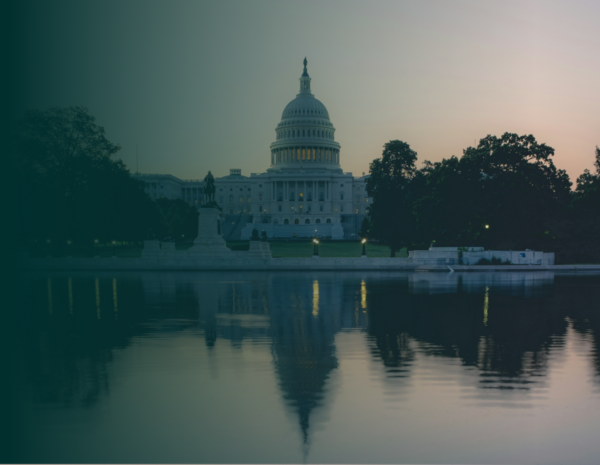Our current political landscape is marked by polarization and stagnation in Congress. In this context, it’s become common for highly partisan state governments to push novel legislative proposals. For instance, California has an overwhelming Democratic majority in its state legislature. With this partisan makeup, the legislature has established the strictest data privacy and ESG disclosure laws. Meanwhile, states with large conservative majorities like Alabama and Arkansas have recently leaned further right on abortion and gun laws.

It can be surprising to see both Republican and Democratic-controlled states moving in the same direction on legislation. But this is exactly what is happening when it comes to regulating children’s social media use. In recent years, many states have acted to regulate or restrict the use of social media by minors. This includes California, Texas, Ohio, and Arkansas, among others. Regulating children’s social media use is proving to be a uniting, bipartisan issue.
Just this week, Governor DeSantis signed Florida HB 3 into law. The new law, passed by Florida’s overwhelmingly Republican legislature, is expected to face legal challenges. If it survives, HB 3 would ban children under 14 from using social media. It would also require parental permission for 15 and 16-year-olds.
At the same time, Illinois’s Democratic House of Representatives is also advancing a bill that would regulate children’s activity online. HB 5380, known as the Parental Digital Choice Act or Sammy’s Law, advanced out of the House Consumer Protection Committee in mid-March. It is is expected to be voted on by the full House soon. Below, we use Plural’s AI capabilities to better understand HB 5380. How does Illinois HB 5380 fit within the bipartisan trend of regulating children’s social media use?
Summarizing HB 5380: The Parental Digital Choice Act
Plural provides access to both source-provided data and insights unlocked by our industry-leading, AI-powered models. As seen below, the AI summary typically adds clarity, context, and readability that can often be missing in source-provided summaries.
Illinois HB 5380: Source-Provided Summary
Creates the Let Parents Choose Protection Act. Provides that the Act may be referred to as Sammy’s Law. Provides that, before August 1, 2025, or within 30 days after a service becomes a large social media platform after August 1, 2025, a large social media platform provider shall create, maintain, and make available to any third-party safety software provider a set of third-party-accessible real time application programming interfaces, including any information necessary to use the interfaces, by which a child, if the child is 13 years of age or older, or a parent or legal guardian of a child, may delegate permission to the third-party safety software provider to: (1) manage the child’s online interactions, content, and account settings on the large social media platform on the same terms as the child; and (2) initiate secure transfers of user data from the large social media platform in a commonly used and machine-readable format to the third-party safety software provider. Sets forth disclosure requirements to the child and the parents or guardians of a child; requirements of third-party safety software providers; and liability of third-party safety software providers. Provides that a violation of any of the provisions of the Act is an unlawful practice under the Consumer Fraud and Deceptive Business Practices Act. Amends the Consumer Fraud and Deceptive Business Practices Act to make a conforming change. Effective June 1, 2025.
Illinois HB 5380: Plural AI Summary
The bill is proposing the following:
- Require large social media platforms to provide real-time APIs to authorized third-party safety software providers. This will allow parents/guardians to delegate permission to these providers to manage children’s online interactions and transfer user data.
- Define requirements for third-party safety software providers to access the APIs, including:
- Being solely engaged in Internet safety
- Only using user data to protect children from harm
- Only disclosing user data as permitted
- Disclosing how they operate and collect info to enable informed consent
- Provide liability protection for social media platforms that comply with the bill.
- Allow the Attorney General to enforce the bill under the Consumer Fraud and Deceptive Business Practices Act.
- Amend that Act to specify violations of this bill as unlawful practices.
- The bill would take effect on June 1, 2025.
In summary, the key proposals are mandating social media platforms provide access to third-party safety software providers to help parents manage children’s accounts and protect them from harm, with regulations and enforcement mechanisms.
How Does Illinois HB 5380 Compare to Other State Efforts?
HB 5380 does not go as far as legislation from other states seeking to implement a firm ban on the use of social media by minors of a certain age. Regardless, there are key similarities. HB 5380 would require social media companies to make significant changes to their platforms. For this reason, social media companies and their coalitions have opposed these efforts.
It’s likely that the Illinois House will vote on HB 5380 in April. If successful, it will then pass on to the Senate after that. You can follow upcoming activity on HB 5380 and discover related social media regulation proposals in Plural.
Get Started With Plural
Plural is the policy tracking tool of choice for policy pros looking to monitor social media laws, including Illinois HB 5380. Create a free account or book a demo today!
More Resources for Public Policy Teams
Key Benefits of AI for Lobbying & Advocacy
Want to be able to explain the benefits of artificial intelligence for lobbying and advocacy? Everyone is talking about AI. And we get it, it’s not simple to understand. But as an AI-powered organization, Plural is here to help you get the most out of advancements in AI to make your job as a policy […]
2025 Legislative Committee Deadlines Calendar
Staying on top of key deadlines is manageable in one state, but if you’re tracking bills across multiple states, or nationwide, it quickly becomes overwhelming. That’s why we created the 2025 Legislative Committee Deadlines Calendar. Stay ahead of important dates and download our calendar today. Get started with Plural. Plural helps top public policy teams get […]
End of Session Report: Florida 2024 Legislative Session
The 2024 Florida legislative session saw significant activity in the realm of insurance and financial services, reflecting key themes of consumer protection, market stability, and regulatory modernization.





